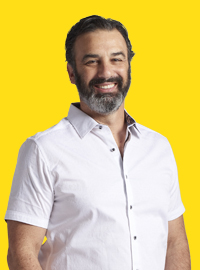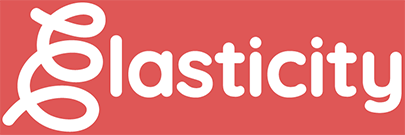I am 53-years-old.
- Seven years ago, I started playing guitar. I had no idea what would come of it. I only knew I had always wanted to play rock’n’roll. Today, I am a songwriter, lead a band, play shows in front of crowds and have three albums.
- In September 2019, after 48 years of living with deep insecurity—driving fits of anger and an unquenchable social anxiety which made me want to scream “look at me” anytime I was in a crowd—I took my first steps to admit and address my anxiety through counseling and prescriptive means.
- In November of 2018, after drinking heavily for some 30 years, I told my wife I was done with alcohol. I remain sober some five-and-a-half years later.
I tell you all of this because in life and business, people and organizations must continually reinvent themselves. Unlike my father’s beliefs, old dogs can learn new tricks.
Arguably, in fact, nothing is more important than personal and organizational reinvention towards growth. It’s actually why we named ourselves Elasticity, as we aspire to be on the bleeding edge of change, unafraid of what might come next as the marketing communications and advertising industries have been evolving at breakneck speed for 25 years. We knew that Elasticity must be able to pivot, grow, learn, expand our perspectives as well as the manner in which we operate repeatedly in order to succeed.
Consider work trends in a post-Covid environment. It has impacted every business manager and owner I know. We are all working to find the right balance for our organizations that effectively meet the temperature of today’s workforce which has become largely accustomed and comfortable working from home, in spite of the significant data citing the negative impacts of isolation on mental health.
The reinvention elephant in the room, of course, is generative AI. Business leaders are either intrigued, confused, terrified or collectively intrigued, confused and terrified. A report from Accenture released earlier this year began with, “In 2022, we set out a bold prediction: companies that embrace Total Enterprise Reinvention as a strategy using technology, data and AI would lead in the coming decade.”
It also noted that, “Between 2019 and 2022, Reinventors increased their revenues by 15 percentage points more than the rest of our research participants, with an average profit margin 5.6 percentage points higher. Crucially, Reinventors are widening the gap between them and their competitors—increasing the revenue growth gap by 2.4 times—creating an imperative for others to act.”
This is one reason why my partner Brian Cross began a weekly lunch session for our team, where we discuss and examine the practical uses through which generative AI can further our business processes and products. It’s why our creative director Nick Walden and his team are using AI in the development of creative design.
But here’s what is also essential and often overlooked: Generative AI requires the wisdom and guidance of humans to guide it and use the tool. Hammers do not swing themselves. AI is essentially shit-in and shit-out. If you feed the machine poorly contrived information, it won’t help you do what you need to do.
McKinsey just published a study called, “The Human Side of Generative AI: Creating a Path to Productivity.” The new research notes that generative AI, “may well automate up to 30 percent of business activities across occupations by 2030.”
But in automating efficiencies, how can we reimagine jobs to be more human centric? And as teams start using generative AI—in theory to help free up capacity—management jobs will evolve. Hence, managers will need to lead both people and the use of AI.
Ultimately, all of this requires a growth mindset that enables an acceptance, rather than a fear, of change. Reinvention is not a bad thing. I’m sorry dad, but if I can pull myself from drunkenness and play guitar in front of a few hundred people, dogs must learn old tricks. Reinvention should be a welcome visitor.



